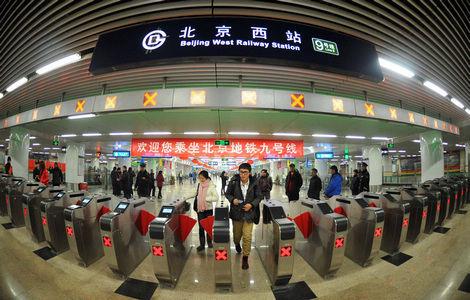Labor disputes soar in Guangdong
Updated: 2012-01-01 09:12
By Li Wenfang (China Daily)
|
|||||||||||
GUANGZHOU - Labor dispute cases reported in Guangdong province, an economic powerhouse in South China, surged almost three-fold in the past four years, with the implementation of the new Labor Contract Law.
Such cases have totaled around 300,000 so far this year, 2.7 times those in 2007, said Lin Jingqing, head of the provincial court of labor and personnel dispute mediation and arbitration at a forum on Dec 26.
The surge is partly attributed to the new labor law implemented in 2008, which lowers the threshold for labor dispute arbitration, Lin said.
Another important factor behind the increase is that workers, especially the younger generations, have become more aware of their rights, said Liu Shanshi, director of the human resources department of South China University of Technology.
Law enforcement has become more regulated with the new labor law, he said, adding that accumulated cases that had not been solved from previous years also contributed to the growth.
In about 24.7 percent of the cases this year, the workers received a complete win, down from the 34 percent in 2008. Partial wins for both sides were recorded in 60.4 percent this year, up from the 52.9 percent in 2008.
The change indicates that the employment practices of enterprises have become more regulated and that some workers in the cases, instigated by illegal agents, had raised excessive demands, Lin said.
The number of labor dispute cases has increased massively in recent years, with group dispute cases happening frequently, according to the provincial human resources and social security department.
The department issued a guideline on strengthening labor dispute meditation and arbitration earlier this month, which aims to set up labor dispute arbitration courts at all arbitration organizations across the province by the end of 2013.
The guideline pledges prioritized services to rural workers, female workers and disabled workers.
Special arbitration courts will also be set up for major group disputes involving fleeing employers.
Liu Shanshi said workers should strengthen their negotiation ability as a group.
The government should improve its supervision over enterprises, he said.
Hot Topics
Kim Jong-il, Mengniu, train crash probe, Vaclav Havel, New Year, coast guard death, Internet security, Mekong River, Strait of Hormuz, economic work conference
Editor's Picks

|

|

|

|

|

|







